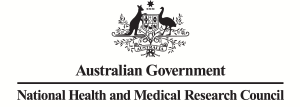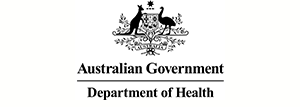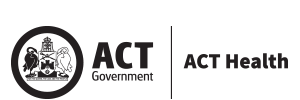Systems approaches in action

Status completed
Start Date
End Date
After applying systems approaches within our individual projects for several years, it was time to determine what can be learned across our projects.
This research illustrates how researchers, policy makers and practitioners can use systems approaches to better work together to bring about change.
Introduction
This project will continue to produce peer-reviewed publications and other resources beyond its funding end date.
This project gained a clearer picture of how systems approaches are being used to describe and understand complex problems. We also identified, at a deeper level of practice, whether and how systems approaches are being used to create real world change. It identified when and how prevention research uses systems approaches to address issues of complexity, and, based on these findings, what the Prevention Centre and those researching more broadly within the prevention system could do differently to enact systems change.
Featured project resources
-
Using systems approaches to tackle complexity in prevention
Resource category:Findings Brief
Date -
Complexity and the Prevention Systems Change Framework
Resource category:Videos
Date -
From understanding to action: Developing a prevention systems change framework
Resource category:Videos
Date -
Addressing complexity in prevention research: The dynamic duality of systemic and systematic approaches
Resource category:Videos
Date
Featured project news
-
Systems approaches in prevention research: Striking a balance between systemic and systematic
News Category: Prevention Centre NewsDate -
Creating systems of leadership in prevention research
News Category: Media coverageDate -
Creating change: A Systems Change Framework to drive action on chronic disease
News Category: Media coverageDate
About
Addressing complexity in prevention research using systems approaches: systems case studies
Project titleWhat is the issue?
Since the Prevention Centre was established in 2013, it has shown the value of systems approaches for research into chronic disease prevention. Systems approaches incorporate systems thinking, systems practices and systems science methods, and are useful when dealing with complex problems such as chronic disease.
Having had several years of applying many different systems approaches within a wide range of individual projects, now is the time to reflect on what can be learned from across the different projects.
This project gained a clearer picture of how systems approaches are being used to describe and understand complex problems. We identified, at a deeper level of practice, whether and how systems approaches are being used to create real world change. It identified when and how prevention research uses systems approaches to address issues of complexity, and, based on these findings, what the Prevention Centre and those researching more broadly within the prevention system could do differently to enact systems change.
How did the project address the issue?
This project identified and brought together key lessons from a diverse range of Prevention Centre projects on the use and value of systems thinking, systems practices, and systems science tools in applied prevention research.
We identified up to 10 case studies of former and current Prevention Centre projects that used systems approaches to address complex problems in prevention.
We used comparative case study analysis to understand the utility of systems approaches for addressing complexity as it relates to chronic disease prevention, and whether and how they have sought to bring about change in prevention research, policy or practice.
We used qualitative methods including interviews and group model building to uncover similarities, differences and patterns across our chosen case studies. In doing so we explored the generalisable lessons that can be synthesised across the Prevention Centre that may be of value to others seeking to use systems approaches in prevention research.
Relevance for practice
This research illustrates how researchers, policy makers and practitioners can use systems approaches to better work together to bring about change. It will inform policy makers and funders of the key factors that support the use of effective systems approaches, and when, and in what combination, these approaches are appropriate for prevention research.
This project worked closely with members of the Prevention Centre’s Leadership Executive and our Funding Partners. Our findings are informing the direction of the Prevention Centre’s research into the future.
The findings will also enhance the skills and capacity around the use of systems approaches for those working in chronic disease prevention, policy and practice.
What are the outcomes?
The outcomes of this project are:
- Recommendations and a systems reporting framework relevant for prevention research, policy and practice
- A suite of case illustrations, practice examples and peer review publications
- Practical guidance on how to improve the use of systems approaches for the prevention of chronic disease.
News and media
-
Systems approaches in prevention research: Striking a balance between systemic and systematic
News Category: Prevention Centre NewsDate -
Creating systems of leadership in prevention research
News Category: Media coverageDate -
Creating change: A Systems Change Framework to drive action on chronic disease
News Category: Media coverageDate -
Systems change framework for prevention
News Category: Prevention Centre NewsDate
Other news and media
Blog
- Pescud M and Townsend B. 12 Tips for digital interviews and interactions during COVID-19.
Resources
-
Using systems approaches to tackle complexity in prevention
Resource category:Findings Brief
Date -
Complexity and the Prevention Systems Change Framework
Resource category:Videos
Date -
From understanding to action: Developing a prevention systems change framework
Resource category:Videos
Date -
Addressing complexity in prevention research: The dynamic duality of systemic and systematic approaches
Resource category:Videos
Date -
A prevention systems change framework
Resource category:Reports
Date -
Systems thinking across disciplines: Working, moving and living within systems
Resource category:Podcasts
Date -
Embracing complexity: thinking and working in systems
Resource category:Videos
Date -
Preventing chronic disease, our greatest health problem
Resource category:Factsheets
Date
Publications
Other publications
2020
- LaBond C, Banwell C, Pescud M, Doan T, and Strazdins. (2020). Blue collar timescapes: work, health, and pension eligibility age for mature age Australian bus drivers. Critical Public Health.
- Davies C, Pescud M. (2020). The arts and creative industries in health promotion: An Evidence Check rapid review brokered by the Sax Institute for The Victorian Health Promotion Foundation.
Presentations
2021
- Irving M, Pescud M, and Rychetnik L. When ‘Knowledge Mobilisation’ meets ‘Systems Thinking’: A whole new world? Evidence and Implementation Summit, Sydney, 30-31 March 2021.
- Pescud M, and Boelsen-Robinson, T. Being a systems thinking leader: What does this mean for prevention? Prevention Centre Research Network, May 2021. (Recording and PowerPoint presentation).
2020
- Rychetnik L. Systems approaches to chronic disease prevention. Teaching sessions, Graduate Certificate on Environment, Society and Health, University of Notre Dame, September 2020.
- Pescud M. Systems thinking for prevention research., Prevention Centre Research Network, 28 July 2020.
- Rychetnik L. Systems approaches to public health. University of Notre Dame Graduate Certificate of Environment, Society, and Health. 2020
- Pescud M. Sharing perspectives: Systems thinking for chronic disease prevention. Shoal Group’s Ideas Club, hosted across RegNet and Shoal Group’s offices, Adelaide, via video conference, 4 March 2020.
People
Lead investigators
-
Professor Lucie Rychetnik
The University of Sydney -
Dr Melanie Pescud Dr Melanie Pescud has finished working with the Prevention Centre.
University of Western Australia
Project team
-
Professor Steven Allender
Deakin University -
Professor Sharon Friel Professor Sharon Friel has finished working with the Prevention Centre.
Australian National University -
Dr Michelle Irving Dr Michelle Irving has finished working with the Prevention Centre.
University of Sydney -
Associate Professor Therese Riley Associate Professor Therese Riley has finished working with the Prevention Centre.
Victoria University -
Professor Diane Finegood
Simon Fraser University -
Professor Harry Rutter Professor Harry Rutter has finished working with the Prevention Centre.
University of Bath, UK -
Professor Ray Ison
Open University, UK



















